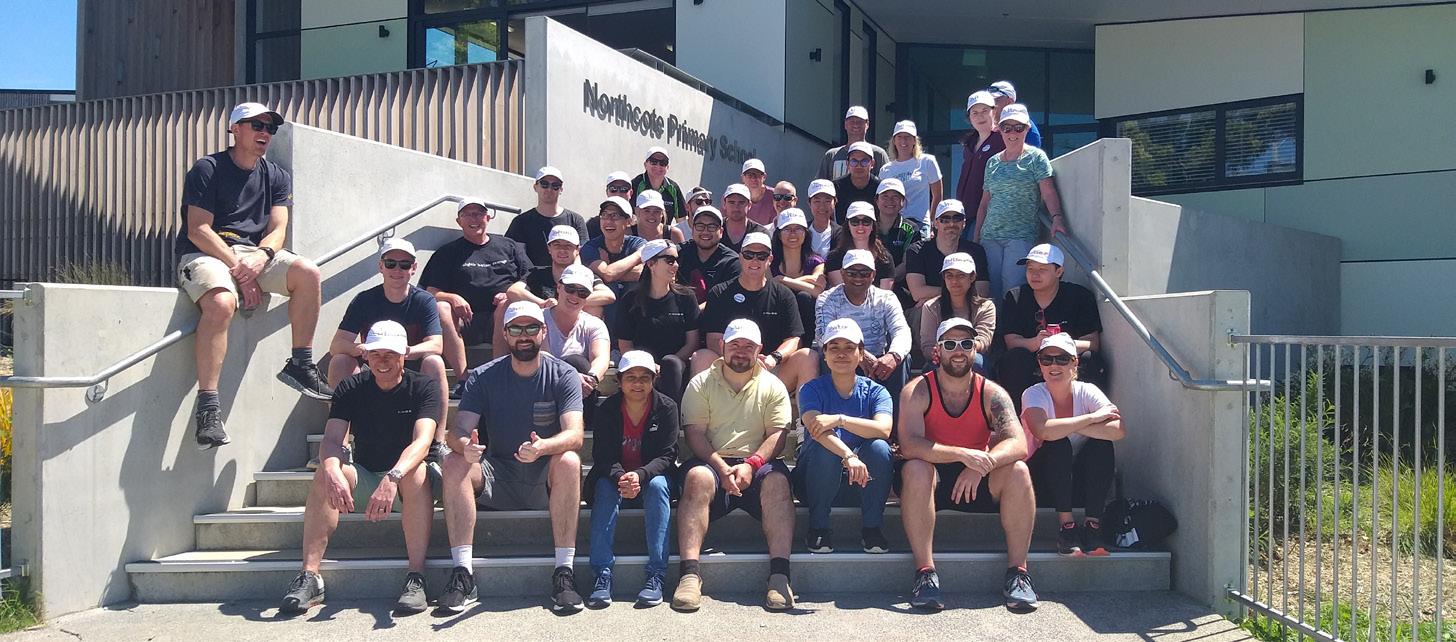
2 minute read
Charity profile: Corporate volunteering builds strong teams
from Human Resources - Autumn 2021 (Vol 25: No 3) - Maintaining a positive culture in a disrupted world!
While reimagining team dynamics and culture in the COVID-19 environment won’t happen overnight, organisations can take action right now, to reinject purpose and a sense of achievement into the workplace, according to United Way New Zealand. It is inexpensive, has an immediate effect and is needed more than ever before.
For over 45 years, United Way New Zealand has helped funders and organisations of all sizes to design and deliver social responsibility and community engagement programmes with real impact. The not-for-profit matches organisations with small-to-medium frontline charities all over the country that have no in-house marketing and fundraising resources. These frontline charities are generally the first port of call for New Zealanders when they need help, and COVID-19 has been no exception.
Teresa Moore, CEO of United Way New Zealand, says with demand for the services continuing to rise exponentially as the social and economic effects of COVID-19 begin to bite, corporate volunteering and workplace giving is the ultimate exercise in mutual outcomes, with significant positive impacts for both community charities and employee engagement.
“No matter how agile your team has become, pivoting to allow for the new normal takes a toll on employee sentiment and team culture. Injecting opportunities to find a sense of achievement into your work environment will lead to new perspectives, new community relationships and most importantly opportunities for employees".
And there isn’t a better time than now to see the effect. Research undertaken in April 2020 by United Way New Zealand shows Kiwi charities are under increasing pressure, managing a surge in demand with fewer resources, due to COVID-19.
However, Moore cautions that corporate social responsibility (CSR) and corporate volunteering aren’t a set and forget process.
“Identifying the right volunteering opportunities in multiple locations can be incredibly time-consuming, and it’s hard to assess what, if anything, the impact will be. If CSR initiatives are treated as an ad hoc, last-minute exercise they risk becoming a chore rather than a valuable experience for your people and brand,” says Moore.
Moore believes, to maximise the impact of CSR and corporate volunteering, organisations must align projects with their underlying vision and values and allow for employee input. Projects should also enable cross-functional teams to develop relationships across the business.
“It’s amazing how many times we see employees demonstrate experience or skills they haven’t shown in a work environment because a programme has offered the opportunity to do so,” says Moore.
In September, United Way New Zealand launches a free Volunteer Hub where volunteer coordinators can browse and identify opportunities across the country. Moore says United Way New Zealand will grow the hub in coming months, building a valuable tool for those tasked with facilitating corporate volunteering and CSR.
“Thoughtfully designed and executed corporate volunteering and CSR projects act as a catalyser. The new relationships formed, discussions had and experience uncovered is brought back to the workplace enabling stronger teams and ongoing change that simply wouldn’t have happened otherwise,” says Moore.
For more information or to talk to United Way New Zealand about maximising the impact of your CSR or corporate volunteer programmes, please visit www.unitedway.org.nz.










